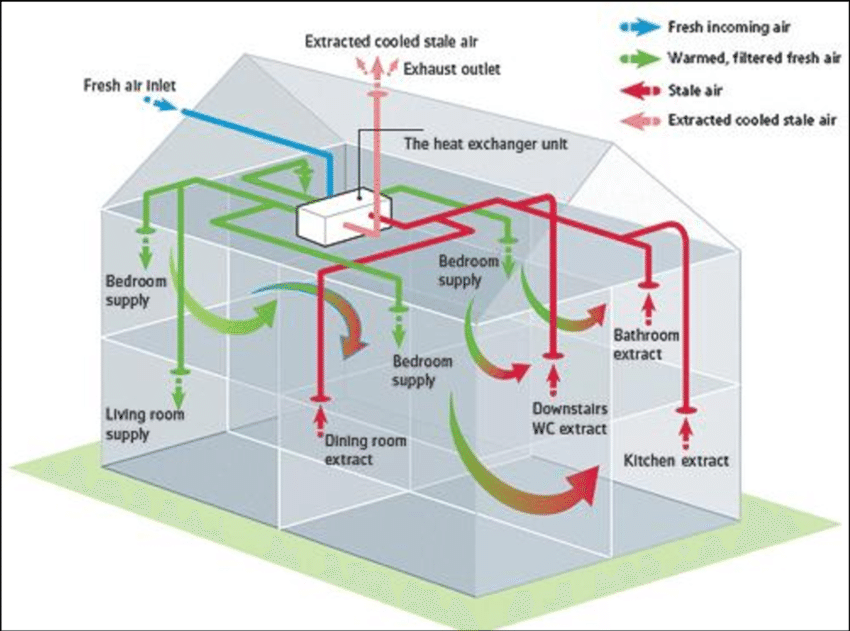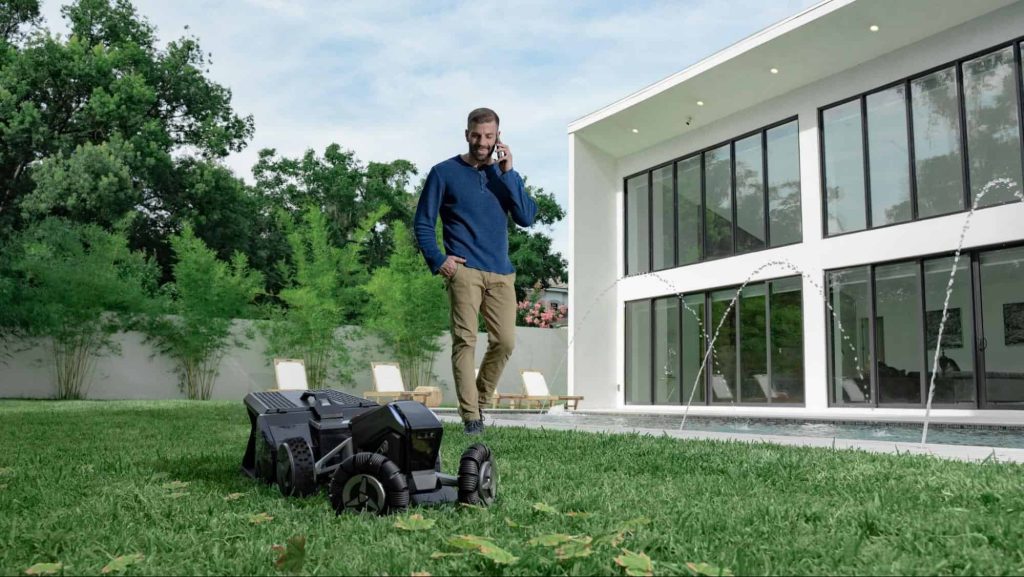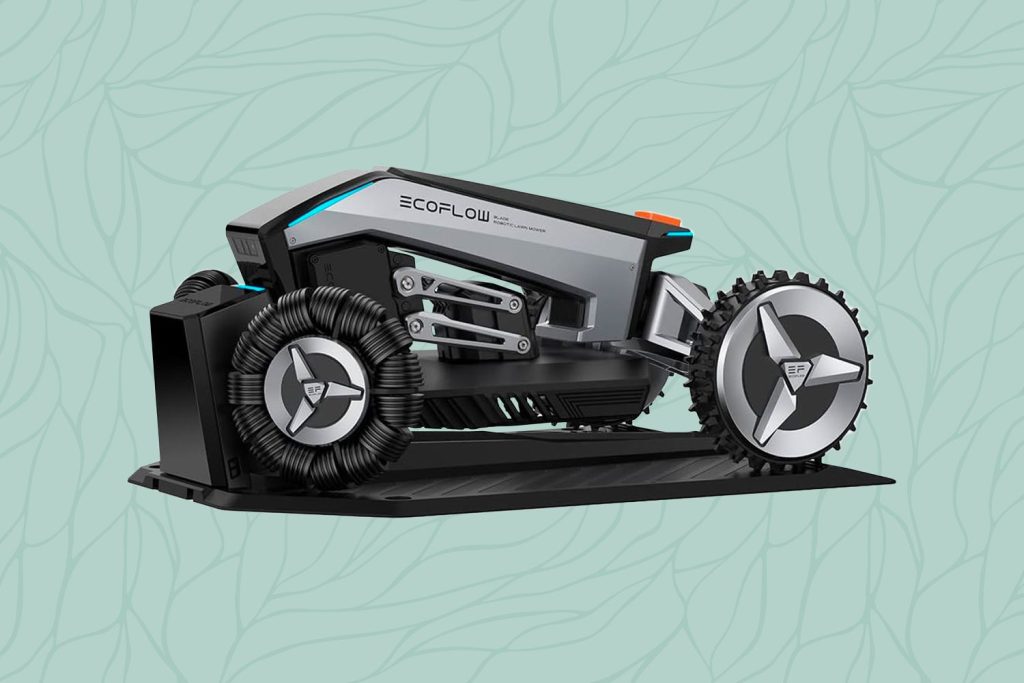In modern construction and renovation, there is a growing focus on enhancing both indoor air quality and energy efficiency. This shift is driven by the need to create healthier living environments while minimizing energy costs. One of the most effective solutions to achieve these goals is the implementation of mechanical ventilation with heat recovery (MVHR), commonly known as “rekuperacja” in Polish. MVHR systems not only ensure continuous ventilation but also recover heat from exhaust air, reducing the demand for additional heating or cooling.
What is Mechanical Ventilation with Heat Recovery (MVHR)?
Mechanical Ventilation with Heat Recovery, or rekuperacja, is a sophisticated system designed to improve indoor air quality by continuously exchanging stale indoor air with fresh, filtered outdoor air. Unlike traditional ventilation methods that often result in heat loss, MVHR systems incorporate a heat exchanger that recovers a significant portion of the heat from the outgoing air and transfers it to the incoming air. This process reduces energy consumption, lowers utility bills, and maintains a comfortable indoor climate.
Benefits of Implementing MVHR Systems
The advantages of installing an MVHR system in residential or commercial buildings are numerous. The most notable benefits include:
- Enhanced Indoor Air Quality: By ensuring a continuous supply of fresh air, MVHR systems help reduce indoor pollutants, allergens, and moisture levels, which can contribute to respiratory issues and mold growth.
- Energy Efficiency: The heat recovery process can reclaim up to 95% of the heat from the outgoing air, significantly reducing the need for additional heating and lowering energy consumption.
- Comfort and Consistency: MVHR systems maintain consistent indoor temperatures and humidity levels, enhancing overall comfort for occupants.
- Cost Savings: Although the initial investment in an MVHR system can be substantial, the long-term savings on heating and cooling costs can offset these expenses over time.
Key Considerations for Choosing an MVHR System
When selecting an MVHR system, several critical factors must be evaluated to ensure optimal performance and return on investment. These factors include:
Efficiency of the Heat Exchanger
The heart of any MVHR system is its heat exchanger. The efficiency of this component determines how much heat is recovered from the exhaust air. High-efficiency exchangers can recover up to 95% of the heat, significantly reducing energy losses. When choosing a system, look for models with high-efficiency ratings to maximize energy savings and indoor comfort.
Fan Performance and Noise Levels
The fans in an MVHR system are responsible for moving air in and out of the building. Their performance directly affects the system’s overall efficiency. It’s essential to select a system with fans that provide adequate airflow while maintaining low noise levels. Silent operation is particularly important in residential settings where noise can impact comfort and quality of life.
Control Mechanisms
Modern MVHR systems come with advanced control mechanisms that allow users to monitor and adjust ventilation rates, humidity levels, and temperature. Look for systems with smart controls that can be integrated into home automation systems. These controls enhance convenience, improve efficiency, and provide real-time data on system performance.
Installation and Maintenance Requirements
Proper installation is crucial to the effective operation of an MVHR system. The system’s ductwork must be correctly sized and insulated to prevent heat loss and ensure efficient airflow. Additionally, regular maintenance is necessary to keep the system functioning optimally. Filters need to be cleaned or replaced periodically to prevent clogging and ensure good air quality.
For a more in-depth understanding of how to install and maintain an MVHR system effectively, you can refer to this detailed guide.
Common Challenges and How to Overcome Them
While the benefits of MVHR systems are numerous, there are also some challenges associated with their implementation:
- Initial Cost: The upfront cost of purchasing and installing an MVHR system can be high. However, this investment is often justified by the long-term savings on energy bills and the improved indoor environment.
- Space Requirements: MVHR systems require space for ductwork and units. In some buildings, particularly older properties, retrofitting a system can be challenging. Careful planning and professional consultation are essential in these cases.
- Regular Maintenance: To ensure the system remains efficient and effective, regular maintenance is required. This includes cleaning or replacing filters, inspecting ductwork, and checking the performance of fans and heat exchangers.
Future Trends in MVHR Technology
The field of mechanical ventilation with heat recovery is continually evolving. New technologies are being developed to make these systems even more efficient and user-friendly. Innovations such as smart sensors, enhanced filtration systems, and integration with renewable energy sources like solar panels are becoming increasingly common. These advancements are expected to further reduce energy consumption, enhance indoor air quality, and provide even greater control over indoor environments.
Conclusion
Implementing a mechanical ventilation with heat recovery system offers a comprehensive solution to improving indoor air quality and reducing energy costs. While the initial investment may seem significant, the long-term benefits in terms of energy savings, enhanced comfort, and a healthier living environment make MVHR systems an attractive option for modern buildings. By carefully selecting a system with the right components and ensuring proper installation and maintenance, building owners can maximize these benefits.
—
This article was created in collaboration with remont.biz.pl, a comprehensive resource dedicated to topics related to home construction, domestic installations, renewable energy, and gardening. The site provides valuable information for anyone planning a home build, interested in modern installation technologies, or seeking practical gardening advice. For more insights and expert content on these subjects, follow similar articles to ensure you never miss an update. Stay informed with the latest news on Google News.








